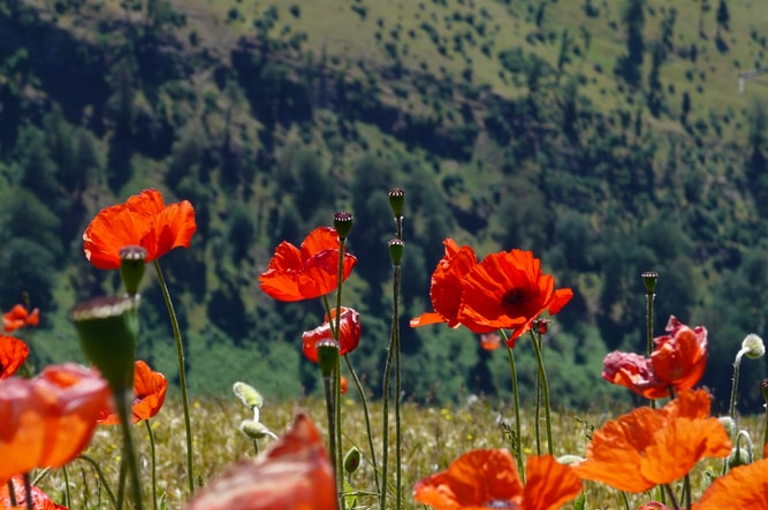I woke up today with seven Zoom calls on my schedule, and it’s not even a day when I teach. I skipped the 8 a.m. call, even though it was going to be Kim Stanley Robinson, an author whose work I love, talking about his recent essay, “The Coronavirus Is Rewriting Our Imaginations.”
The next was a chat with just one person, so that felt kind of normal.
After that, though, I was looking at four more calls from 12:15 to 8 p.m., some of them overlapping others so I couldn’t even attend all of them.
But then I started feeling a little worn out. And I started cancelling them, one after another, even though they were with great people doing great local and national activism with Cool Eco Vista, the Central Coast Climate Justice Network, Transition US, and the new Cooperation Santa Barbara. The fourth was a department meeting but I am fairly sure that none of my colleagues will see this piece, ha ha.
Then I went to catch up on some reading, in bed (this is also known as taking a nap). After I woke up, feeling slightly refreshed, I read a couple of articles that I had been wanting to read, and they were so good, I thought I should share them with friends and comrades.
And that’s how I came to be writing this essay, which was the small epiphany. Not only did I feel better without a string of Zoom calls on my calendar, I had time to read. I even had time to think. And now, I find that by ignoring other non-Zoomy things on my to do list, I even have time to write!
Whoa, maybe it is time to slow down, to pause, to reset. That pause, to stop, to do nothing, to reflect, was the epiphany, and maybe it’s not so small, we shall see.
The first article that I want everyone to know about, Andreas Weber’s beautiful “Nourishing Community in Pandemic Times,” may be familiar to you, because it appeared in Resilience on May 26. I found it a lot more profound than another piece that has gotten more attention because it is pretty provocative, Amanda Yik’s “Are Viruses Sentient Beings?”

Photo credit: By User DirkvdM on en.wikipedia – Photograph by Dirk van der Made (en:User:DirkvdM – for more photos see en:user:DirkvdM/Photographs)., CC BY 1.0
Andreas, as his writing often does for me, re-ignited a sense of cosmic wonder at the same time as it was rooted, literally, on the earth, and argued against the Western Cognitive Empire identified as problematic by Boaventura de Sousa Santos in his great and challenging book The End of the Cognitive Empire: The Coming of Age of Epistemologies of the South, the first chapter of which can be found here.
And it reminded me of what I stood for, spiritually, and therefore as an activist and sentient being: indigenous ways of relationship, with the earth, with the community, with cosmic time and space. It reinforced a lot of the writing and thinking in the pages of Resilience and everywhere, really, about de-centering the economy, the individual, the heartless toll that work and culture and politics takes on people living in the United States. And it showed the lost path we have to take, in favor of life itself.
Life itself. This is the moment of life. Of meaning. Of clear action. Of solidarity, mutual aid, and massive networks of climate activism in the name of social justice.
Each day now feels like a decisive day in the decade of decision that we have the fate to be alive in. Speeding up the pace at which we slow down. Slowing down the pace of destruction. Speeding up the pace of creation. Slowing down the machines. Speeding up our imaginations, going deeper in our dreams, and walking further, together, asking questions about the future we want. Right now.
The other piece, by Umair Haque, another writer I often enjoy, at his beautifully named website Eudaimonia [shout out to Eco Vistan Jess Parfrey] caught my eye (and probably many others, with its title: “The Future Sucks. Can We Fix It?” In my case because of its resonance with the title of a course I have been teaching for the last three summers, and will again this August, Interdisciplinary Studies 133B [no one knows why B]: “What’s Wrong with the World? How. Do. We. Fix. It?” This class, which I co-teach with my brilliant, gentle friend Ken Hiltner, counts as two courses because it meets for 12 hours a week over six weeks (the usual course at my university is taught for 2.5 hours a week for ten weeks). Seventy-two hours together with students in six weeks, versus twenty-five. You can see that we can at least consider a few ways of fixing the world.
Umair’s essay also touched me, almost living up to its title, in fact. Pointing out that in January, Australia and the United States burned. In February Asia flooded. In March, well, yes, that game-changing virus took hold. And now we are trying to hold on. Worse, he tells us, this is no anomaly but rather “a tiny taste of the future.” Uh oh. A short course in what the next thirty years will look like (now I don’t pretend to know what tomorrow will look like, but the essay was powerful, so I kept reading). It goes something like this.
Twenty-thirties [for some reason Umair skipped the decade we are actually in, I suppose because we are having a good short course in it right now].
2030s: Climate Catastrophe. Yes, that seems right on target.
2040s: The Great Implosion. When dying ecosystems wreck supply chains, shatter economies, bankrupt financial systems. And our social systems are not up to even really keeping things running anymore. This could happen, I guess.
2050s: The Final Goodbye. Animals die off in earnest, soils turn to dust, water supplies to muddy trickles. Our systems fail to feed us, clothe us, nourish us.
When we get there (if not sooner, I might conjecture) nations fight for food, water, air, money, as populations give up on what has passed for democracy [of course democracy is certainly under assault right now, as many European social theorists exist to tell us].
All of that together is the Long Collapse.
Unless, right now, we pivot, in ways equally simple but cogent too. For Umair “today’s stimulus should solve tomorrow’s problems [my emphasis].” It goes something like this:
In the 2020s, we fight the coming climate catastrophe with Green New Deals right now. In the United States, for example, we put the forty million “bright, intelligent, hard-working” people who are officially unemployed (there are many more, and many who are employed but barely able to live), in the Green New Deal, to avert the Corona Virus Depression that is the business-as-usual, pretend-we-can-go-back-to normal plan.
In the 2030s, which will not run to the first script if we do this, we work to avert the Great Collapse of systems with a Green New Deal for the planet. We use the billions of people whom we have educated, fed, and kept healthy by the changes of the 2020s to put their gifts and skills and passion to rebuild ecosystems that are healthy rather than finishing off the Sixth Great Extinction.
By the 2040s [and all of this starts much earlier, like today] we might avert the foretold Great Good-bye of human extinction with a Green New Deal … for life.
Today’s stimulus should solve tomorrow’s problems. Let me simplify it even further. Coronavirus Depression? Green New Deal. Climate Depression? New Deal for the Planet. Extinction Depression? New Deal for Life. A wave of investment like human history has never seen before, with a trajectory in which tomorrow’s great existential risk is taken on, prevented, averted, by today’s New Deal [emphasis removed – it was all in bold].
This way “We don’t have to settle for what we’ve got. Bleach-drinking idiots led by demagogues, while the world burns, and our civilization crumbles into fire, flood, famine, and disease. Can we do better? Maybe. That part, though, is up to you.”
Very nice piece, Umair. You leave us right where I like to start: how do we build that social movement? But in fairness, despite all I’ve written, I can’t answer my own question.
You also don’t mention capitalism once in your essay [I counted]. So maybe we need a sharper political economy of the crisis. And you don’t seem to have read Andreas, or Boaventura, or the authors of Pluriverse about culture, spirituality, and their place in the worlds of systemic alternatives.
But the two of you got my attention today. And all because I cancelled five Zoom calls and had time to nap, to read, to think, and to write.
That’s a big epiphany.
Teaser photo credit: Unsplash.






